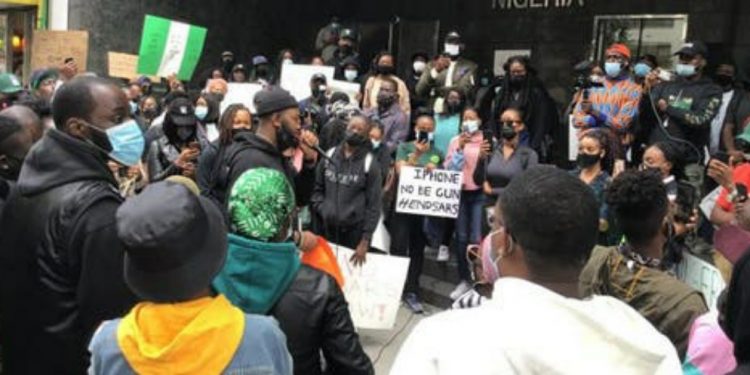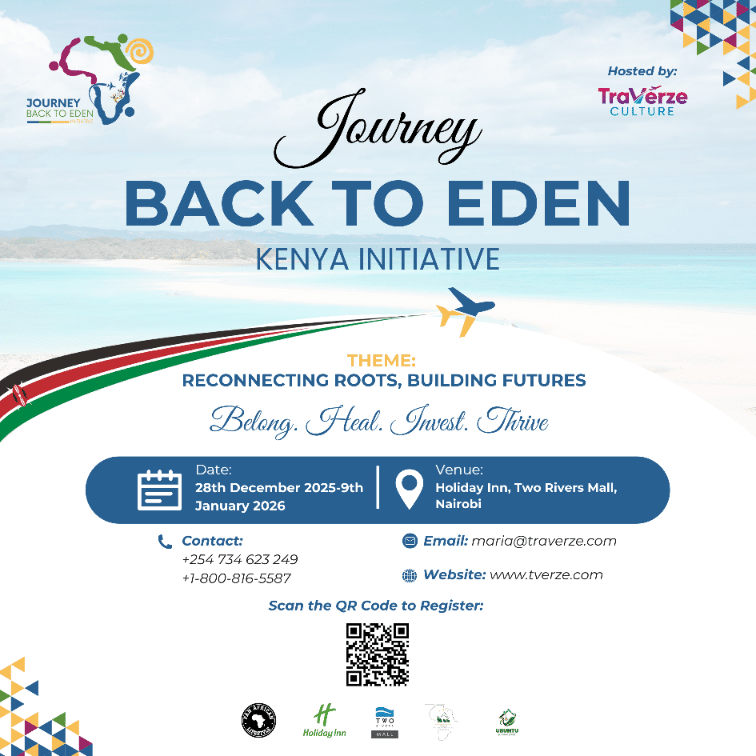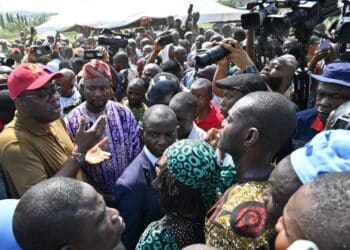By Oludayo Tade
After years of agonising over their brutality and killing by the (now disbanded) Special Anti-Robbery Squad (SARS), a tactical unit of the Nigeria Police formed in 1992 to fight robbery and other violent crimes, Nigerian youths organised themselves through a protest that was well coordinated and organised through the deployment of technology, leadership and administrative sagacity.
It was popularly known as the #ENDSARS protest. The protest was about holding the police institution to account for taking the youth and, by extension, Nigerians for a ride for a long time. They made this happen between October 8 and 20, 2020, starting in Lagos and spreading to other southern states while few states in Northern Nigeria joined. Their message was to end police brutality using the tactical unit of the police, SARS, as the signpost of what a tactical unit ought not to be. They were not violent. They sang, cleaned the streets and raised money for the vulnerable they met on their way. They provided food for some traffic wardens who wanted to run away when they saw the protesters approaching them. They did not want to repay evil for evil; their goal was different: they wanted justice and compensation for the victims of police brutality, an effective governance system in Nigeria that would address problems of unemployment and poverty and also demanded enhanced welfare for the police.
The protest was both online and offline, with thousands on the ground and millions online globally holding the banner of sorosoke to raise their voices against the docility of their parents who belong to the ‘off-the-rack generation that allowed degeneration of the country into its comatose present. State-sponsored thugs and infiltrators were identified and ejected from their purposeful protest march. After the delayed response from the State and attacks on peaceful protesters by sponsored state agents, the protesters became more organised in their resolve to get the State to listen. But the character of our State does not listen to peaceful people or encourage democratic engagements.
The Youth presented their demands through Lagos Governor Babajide Sanwo-Olu, who ran to Abuja to President Muhammadu Buhari. They insisted that their needs must be met before leaving the streets. Aso rock could not stomach such audacity to constitute authority. And on the 20th of October, 2020, the ‘forces beyond our direct control’ shot at protesters at Lekki, with many injured, and many claimed to have died. They succeeded in getting SARS disbanded and off the road, but SARS was a microcosm of the policing system, which explains why brutality and extortion have not decreased.
It is now a year after that protest, and we seem not to have learnt anything, or nothing seemed to have improved. A few days ago, a video trending showed a police officer assaulting a passenger with what Nigerians would call ‘dirty slap’ somewhere in Kogi State. They were led by an Assistant Superintendent of Police and extorted N25,000 from their victim. Those who challenged them were threatened with death, with a shameless police officer in the video going up and down and shouting down on helpless Nigerians. Many of these cases still happen across the country on and off the streets. In my research on ENDSARS protests, participants shared the reasons for participating in the protest. Some had been direct victims, while many knew those who police officers had victimised.
Morenike is one of those who shared her experience with me. “My fiancée was almost arrested on his way from work because he had his laptop with him. His bag was seized and kept in their (Police) van while their boss looked on. He kept shouting and making lots of noise which attracted lots of persons. It was when they realised he was a lawyer he was given his bag and told to go. Also, while coming back from work, he was making a video of SARS officers harassing some youths, and his phone was seized from behind. They also went as far as putting him in their van and claimed they were taking him to the station. One of the officers wanted to unlock his phone to delete the videos and saw a lawyer. They, however, made him transfer #10,000 before he was released.” Another person is Sanya, who said police extorted money from his friend. “ A friend of mine was once arrested just because he used an I-phone and was ‘fresh’, even after they couldn’t prove he was into anything illegal. He still had to be bailed with N20k”. Gbemi is the third who shared what happened to her friend.
“They (police/SARS) once told my friend that because she has a big back side, she has to be doing asewo (prostitute) work and be sleeping with yahoo boys because they’ll be the only ones able to pay a fee of a big girl like her and told her other friend to pull up her gown cause they were not sure if she was putting on any panties!!!! They had to settle with 50k”.
Since that brutal clampdown on Lekki protesters on October 20, 2020, the victims of police brutality are yet to get justice. About Twenty-nine States have submitted the report of their Panels of enquiry set up to probe cases of human rights abuses and police brutality to the government for implementation. Lagos, the epicentre of the protest, suffered losses estimated at over 1trillion naira. As justice gets delayed, new persons become victims of police brutality, and citizens lose trust in the government. It was Governor Babajide Sanwo-Olu, while reacting to the infamous Lekki shooting on protesters on the night of October 20, 2020, who said, “this is the toughest night of our lives as forces beyond our direct control have moved to make dark notes in our history”. To date, these dark notes are still boldly written with the blood of over 70 persons who died during the ENDSARS protest crying for justice. To what extent has the government improved on the welfare of the police as demanded by the protesters? When will justice be served on the victims so that Nigerians can trust their government? Nigerians are crying for justice as forces beyond our control are allowed by the State to write dark notes in our history. Justice brings order and progress, and injustice ushers disorder and stifles development. I celebrate the sorosoke generation urging them not to lose sight of future struggles to get an egalitarian Nigeria where the children of the masses will not be sidelined for not knowing somebody.
*Dr Tade, a sociologist, sent this piece via dotad2003@yahoo.com











